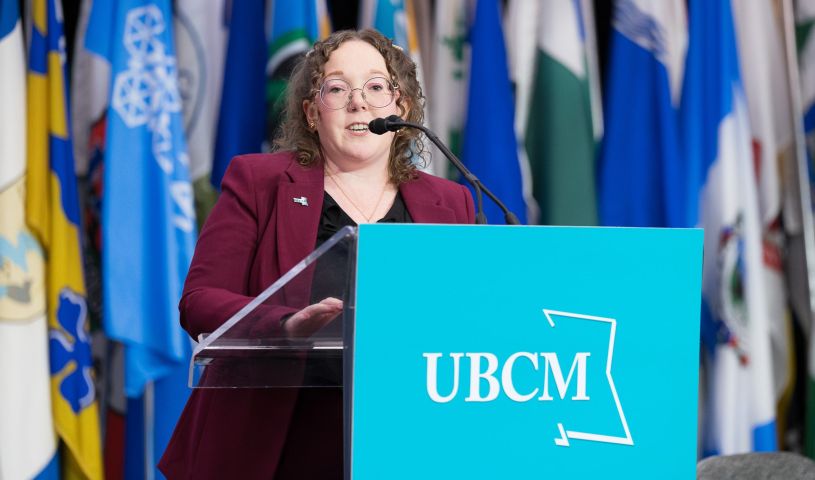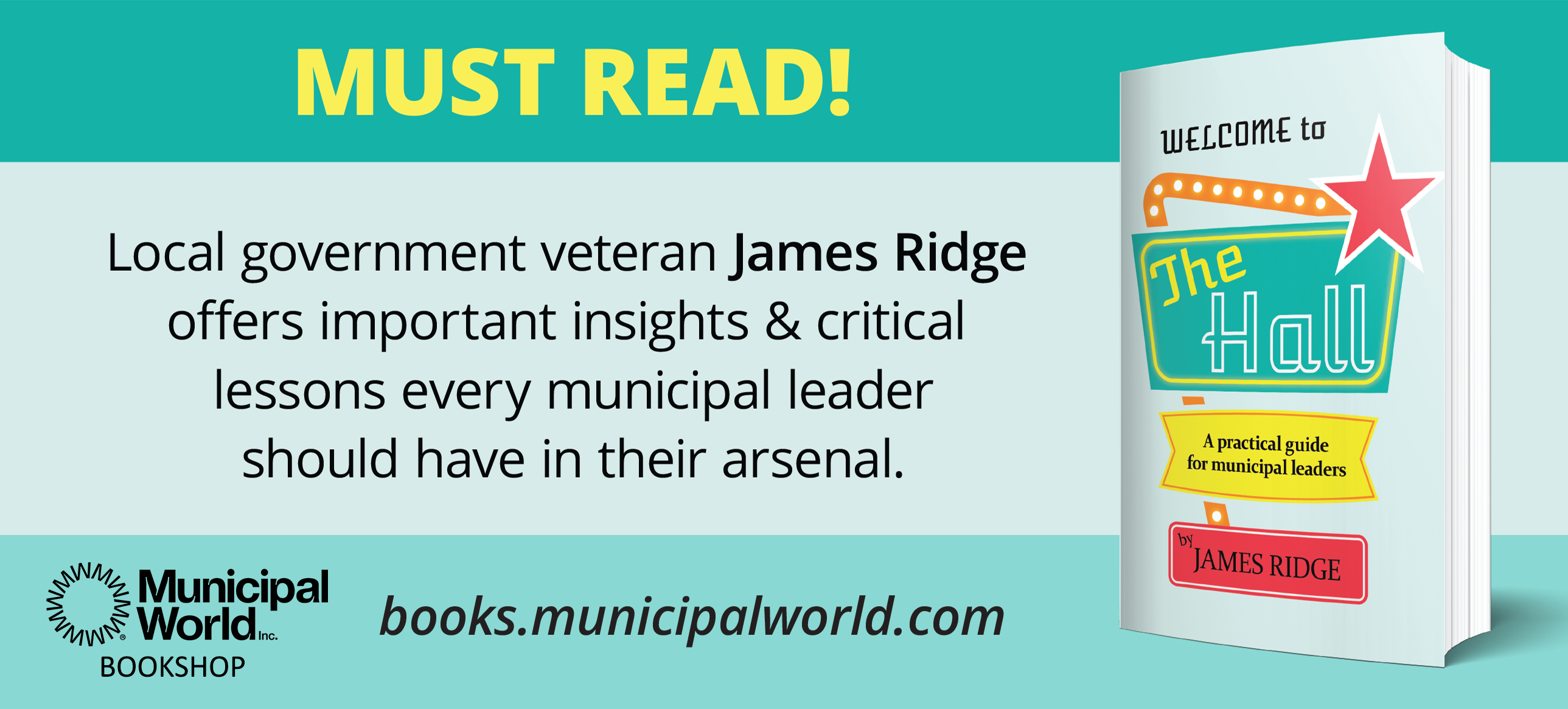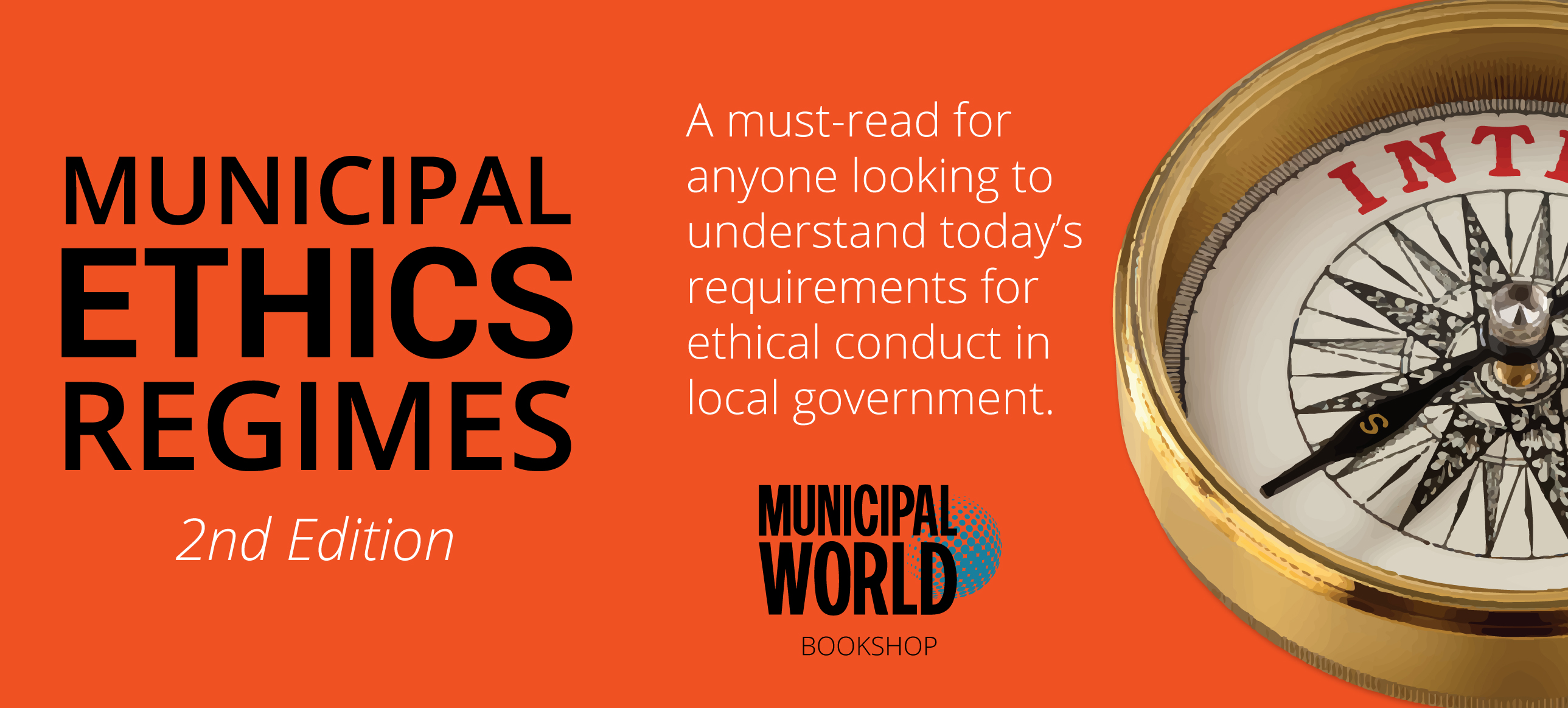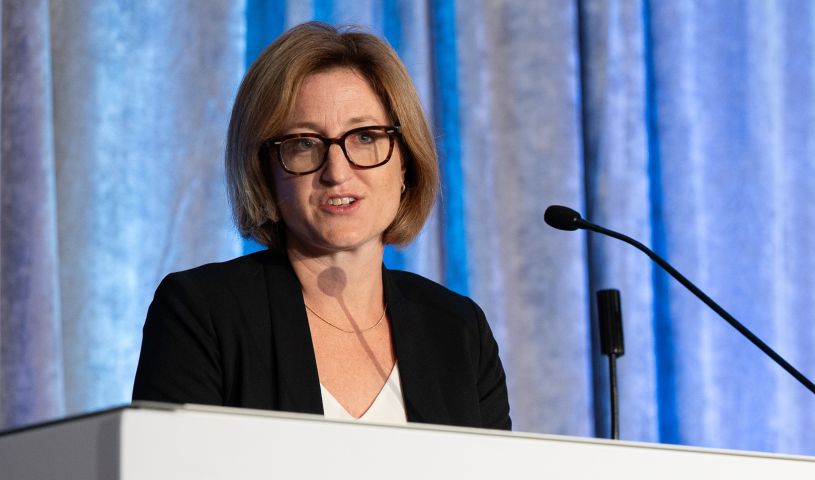UBCM president steps up with eyes on advocacy, equity, and urgency
 Cori Ramsay, the newly elected president of the Union of British Columbia Municipalities, is prioritizing urgent, equity-focused advocacy to support local governments amid rising costs, shifting provincial policies, and escalating social challenges. Photo: UBCM Tumblr
Cori Ramsay, the newly elected president of the Union of British Columbia Municipalities, is prioritizing urgent, equity-focused advocacy to support local governments amid rising costs, shifting provincial policies, and escalating social challenges. Photo: UBCM Tumblr
Cori Ramsay, a two-term councillor for the City of Prince George, has taken on a new mantle as president of the Union of British Columbia Municipalities (UBCM). The role places her at the helm of an organization representing nearly 190 local governments across the province.
Ramsay’s path to the UBCM presidency was paved by her previous leadership as president of the North Central Local Government Association (NCLGA), where she saw firsthand the power of co-ordinated municipal advocacy.
During her time as the president of NCLGA, the organization was standing in opposition to a Nav Canada decision to remove air traffic control towers from multiple airports across Canada, including several in northern British Columbia. Nav Canada provides civil air navigation services for Canada, including air traffic control to guide aircraft safely through airspace, flight information services, and the development and maintenance of air navigation technology.
NCLGA pushed back on that decision through its advocacy, and it resulted in Nav Canada changing its direction. That experience, Ramsay said, solidified her belief in the power of collective voices to affect lasting change.
“I’ve made the joke this week: it feels like everything is on fast-forward mode right now,” Ramsay said. “Our communities are just really struggling, and I want to bring about some change for our members to just improve their experiences at the local level.”
Messy State of Local Government
UBCM represents 166 municipalities, 27 regional districts, and 13 First Nations members. The diversity of its membership – from large urban centres to remote Indigenous communities – presents a unique challenge in ensuring equitable representation and support.
Ramsay said she is “a huge proponent of pluralism,” because it is the ideal way to combat the escalating amount of polarization in the world today.
That polarization is why Ramsay sees the local government space today as a challenging one.
Ramsay emphasized the importance of maintaining local autonomy while navigating sweeping provincial changes. Ramsay points to recent provincial legislation that has significantly altered land use planning, a domain traditionally under local jurisdiction. These changes, she said, have come with limited consultation, leaving local governments scrambling to adapt.
Ramsay describes the state of local government as “messy.” This messiness brings with it the challenge of how to bring about meaningful engagement focusing on the road ahead. And that road includes focusing on not only local decision making but also coping with an unprecedented mental health crisis and escalating homelessness.
“It’s more than just a singular issue. There’s so much more to it. And so when I say messy, I just mean that it’s difficult to navigate at times,” Ramsay said. “It’s no easy task. I really have grace and empathy and compassion for my colleagues at all elected levels, but especially at local government and Indigenous government because we are really the frontline of all that.”
Commitment to Public Service
Despite the challenges, Ramsay remains committed to public service, even as it takes a toll on her personal life.
She admits to an “unhealthy work-life balance,” joking that her partner refuses to accompany her to the grocery store because it inevitably turns into a two-hour community engagement session.
Her dedication stems from a deep sense of responsibility to her community and a belief in the importance of having a seat at the table. Ramsay has been a vocal advocate for increased mental health supports, involuntary care options, and expanded shelter and housing services.
“In terms of why me, I got asked the question many, many times to put my hand up and I responded with, ‘Why not me?’” she said. “This is about collective voices and everyone really trying to make progress on the things that are going to happen impacting our community.”
Setting a Course for Action
As she begins her term as UBCM president, Ramsay is determined to maintain the momentum set by her predecessor, Trish Mandewo. Her priorities include addressing street disorder, responding to changes in the Heritage Conservation Act, and navigating the implications of a recent legal decision involving the Cowichan Tribes that could have national ramifications for land governance.
With inflation and tariffs driving up costs, Ramsay is calling for greater provincial and federal support to help municipalities meet infrastructure demands while also expanding affordable housing stock. Local governments are trying to increase the supply of affordable housing, Ramsay said. But that comes with a huge infrastructure cost. Delivering services like water, sewer, and roads “is just so expensive,” and those costs are escalating due to various reasons such as inflation and tariffs.
This, she added, is why it is such a challenge for municipalities to be financially able to meet their infrastructure needs while also meeting the growing demands of a province that’s seeing its population steadily rise.
“Trish Mandewo had really put the pedal to the metal on a lot of the issues, and I don’t intend on taking my foot off the gas,” Ramsay said. “I think the only way we can move forward is really hitting the ground running.”
Advocacy Yielding Results
Ramsay says years of persistent advocacy from local governments are finally yielding results, particularly on justice reform files that municipalities once considered beyond their scope.
Speaking about the long-standing push for changes to Canada’s criminal code, Ramsay emphasized that collective municipal voices are beginning to influence federal policy.
In addition, UBCM has long been advocating for changes to the property tax system. This system, which Ramsay calls “archaic,” doesn’t fulfill the need for infrastructure reinvestment to meet growing local needs. As such, UBCM and the Federation of Canadian Municipalities have been pushing for increases to the Canada Community Building Fund, including tying those funds to inflation.
Despite these daunting files, Ramsay said there is considerable advocacy being done and she doesn’t think it’s “a dead-end street.” That said, these systems are so ingrained and institutionalized, she acknowledged it is going to take a long time for change to take hold.
“The small, incremental steps that it seems like we’re taking to make progress on something this big takes time. But I do feel like we are making progress,” she said. “At some point, something’s got to give. I don’t know what that’s going to be. I don’t have a crystal ball. It’s just a matter of time before we really get there and so we’ll continue to push that advocacy forward.”
Value of Real-World Stories
As part of her presidency, Ramsay plans to travel across the province to meet with smaller communities and area associations. Her goal is to gather real-world stories that illustrate the urgency behind UBCM’s policy asks.
She brings forward the example of losing a downtown restaurant in Prince George to arson. The person behind the crime, she said, was an individual who had appeared before the courts 19 times in the last three years and was on probation for previous attempts at arson. It’s a situation that she said has been extremely frustrating to her community.
But Ramsay said these personal accounts are critical to effective advocacy. By tying policy proposals to lived experiences, she hopes to make a stronger case for reform.
“As I go to do the roadshow and meet our members, those are the pieces that I look for,” she said. “To hear those experiences and bring them forward so it’s not just, ‘Here’s this ask.’ It’s, ‘Here’s the impact of not doing it.’ That is effective advocacy.” MW
✯ Municipal World Executive and Essentials Plus Members: You might also be interested in Dr. Kate Graham and Jesse Helmer’s article: Turnover at the top: CAOs and council dynamics.
Sean Meyer is digital content editor for Municipal World.
Related resource materials:



